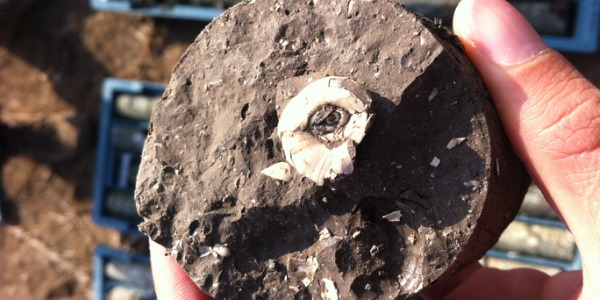What is a Geotechnical Engineer?
Geotechnical engineering is a specialization within civil engineering that involves investigating and understanding what is beneath the ground’s surface. Geotechnical engineers figure out the impact that geological formations may have on construction projects. They use advanced knowledge of scientific and mathematical processes to examine the formation of the earth beneath and around residential, commercial or industrial buildings and structures.
A geotechnical engineer's skills are used for drilling wells, constructing production and storage facilities, transporting petroleum products and examining ground water flow. This career has amazing possibilities, from marine operations, to floating ice platforms in the Arctic, to mining operations.
What does a Geotechnical Engineer do?
All construction takes place in or on the ground, so it is easy to see how geotechnical engineering plays a crucial role in all civil engineering projects. Before any construction work takes place, it is vitally important to do a site investigation. Failure to carry this out often has had negative and expensive consequences on construction projects.

Geotechnical engineers guard and maintain the earth's physical environment during the development of major public and private projects. Combining their expertise in civil engineering construction and design enables them to safely investigate and analyze sites and determine their present and future stability. Projects like these typically involve major changes to the physical environment, and can include tunnelling and construction of major structures like buildings, bridges, dams, airport runways, and towers.
Geotechnical engineers perform the following functions within the framework of the following jobs:
Geotechnical or Geological Engineers (General)
- provide analysis and mapping of technical results obtained from seismic surveys, and investigate subsurface conditions and materials to determine their properties and risks
Geotechnical or Geological Engineer (Oil Sands Projects)
- design open pit walls, mine waste dumps and dam structures used in oil sands mining, and analyze slope stability, seepage and hydraulic separation on dam structures.
Hydrogeological Engineer
- provide design and analysis of ponds containing discarded oil sands materials, water extraction from soil and sand, and steam injection into wells; and evaluate underground water layers trapped in rocks (aquifers). They also provide advice on environmental restoration.
Reservoir Geomechanics Engineer (Oil & Gas Operations)
- analyze the strength of soils, drill hole stability, stress constraint, permeability of rock formations and the degree of trapped hydrocarbons in underground reservoirs
Geomechanics Engineers (Marine Operations)
- analyze the relationship between physical structures and marine geology, anchoring systems, sediment erosion, slope stability, and foundations for offshore and coastal structures
What is the workplace of a Geotechnical Engineer like?
Geotechnical engineers spend most of their time working in comfortable office settings. They occasionally visit operation sites, and are sometimes exposed to potentially hazardous conditions and inclement weather. Extended visits do occur and on occasion, relocation may be required.
Geotechnical engineers can be employed by the following types of organizations:
• Colleges and universities
• Construction contractors
• Electrical utility companies
• Engineering consulting firms
• Mining companies
• Municipal, regional and federal governments
• Oil and gas exploration, production and transportation companies
• Petroleum services companies
• Public and private research organizations
• Real estate development companies